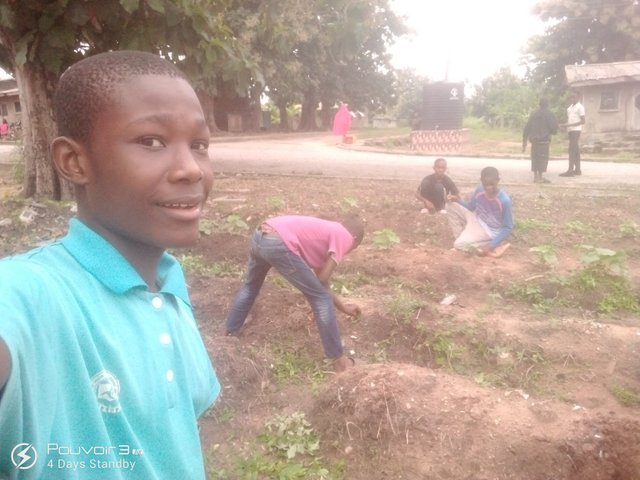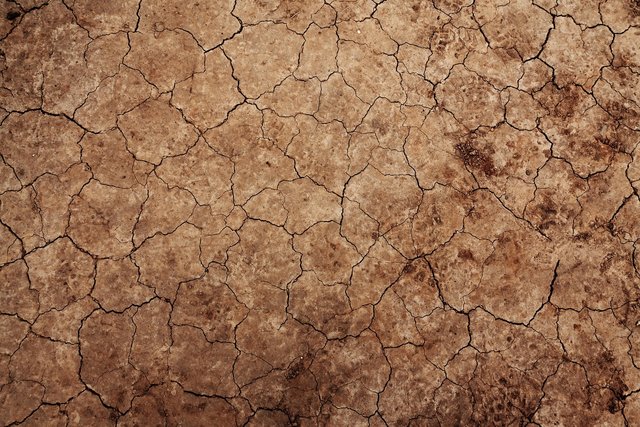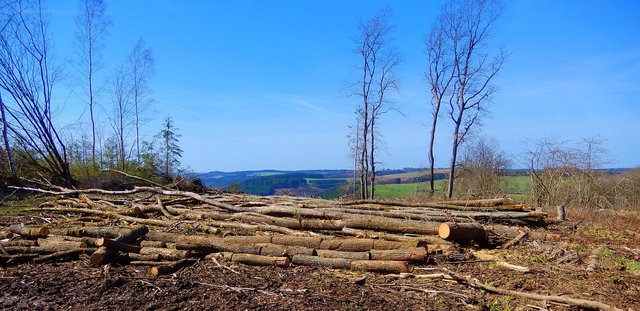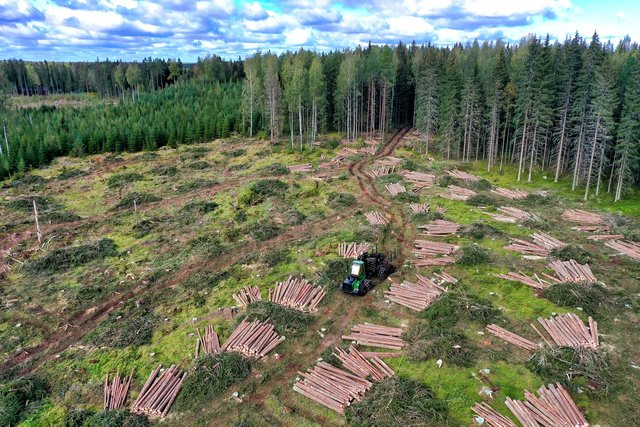Basic Knowledge in Agriculture #33
Hello, Steemains; as farmers and members of the Steem Agro community, we should recognize that soil degradation harms the life of both plants and animals; if crops don't thrive on being produced in large quantities, animals (heterotrophs) will die because they're not able to manufacture their food.
| Discuss soil Degradation |
|---|
Soil degradation can be defined as the reduction of soil fertility, which eventually leads to the death of crops and poor growth and other ecosystem functions. This degradation is mostly caused by natural activities like climate change and human processes such as deforestation, overgrazing, and pollution. Soil degradation harms agriculture by causing reduced production of crops, hunger, and starvation, and making farmers go on loss, discouraging them from continuing in their agricultural pursuits.
Soil degradation is caused by several factors like erosion, pollution, soil compaction, and nutrient depletion. The two major causes of erosion, which are water and wind, remove the topmost soil, which is rich in nutrients and organic matter that gradually leads to soil infertility. The soil nutrients can be depleted through monoculture farming, over-cultivation, and inadequate fertilization, which depletes the required nutrients in the soil. The soil can compact when livestock overgrazes the farmland and heavy machinery; this then decreases the ability of the soil to hold nutrients and water. The degradation of the soil is often caused by pollution; chemicals that are present in fertilizers, pesticides, and industrial waste are capable of contaminating the soil, causing it to become toxic for plants and animals' survival.
| causes of soil degradation |
|---|
Soil degradation alongside overcultivation is a factor that causes farmers' loss; this is because soil degradation deals with nutrient reduction, and overcultivation contributes to it. It is a situation which is caused by natural and human activities. Let's all swing completely into the causes of soil degradation.
NATURAL FACTORS
Erosion: This is known for its great impact on the life of all agricultural activities, affecting almost every aspect all the way. Mainly caused by wind and water, especially on slopes, which causes the topsoil to lose essential nutrients that enable plants to thrive.
Climate change: Climate is known to be the average weather condition of a place at a particular period. It has several effects on soil degradation; weather conditions like droughts and temperature increases can cause extreme dehydration of soil, causing it to be exposed to erosion.
Acidification: Most rainfall is acidic, and making use of fertilizer in excess can lower soil pH, causing plants to grow in a malnutrition environment due to a lack of nutrients in the soil.
HUMAN ACTIVITIES
Deforestation: Deforestation, which is known to be man's daily activity in the creation of infrastructure, has greatly affected soil fertility; I, therefore, encourage everyone to practice reforestation to make sure that the soil stays safe from erosion.
Overgrazing: When farmers practice grazing livestock and allow them to graze more than they are supposed to, it is considered to be overgrazing. This increases the soil risks of being affected by erosion and also decreases the vegetation cover.
| Effects of soil degradation and possible solutions |
|---|
Soil degradation has a lot of effects on the agricultural revolution. This amounts to the loss of soil fertility, severe erosion, and lack of water in the soil.
EFFECTS OF SOIL DEGRADATION
Increased erosion: Soil degradation, most especially regarding water erosion, removes essential nutrients and organic matter that are present in the topsoil, making it susceptible to water or wind erosion, causing plants to die.
Reduced crop yield: Degraded soil has fewer nutrients to support plant growth; in this case, it decreases agricultural productivity and harms food security, most especially in developing countries.
Water quality degradation: soil degradation caused by erosion can lead to prolonged sediment in waterways, harming the quality of water supply to plants through the soil and harming aquatic organisms.
Increased flooding: When the soil is degraded, it loses its required properties to absorb water, causing total flooding and leading to the damage of infrastructure, lives, and properties.
Loss of Arable Land: If soil degradation develops into desertification, it can lead to the loss of fertile land and the conversion of productive areas into deserts.
SOLUTIONS TO SOIL DEGRADATION
Reforestation and afforestation: This is one of the essential ways of controlling soil degradation, it involves planting trees and other vegetation to aid soil health, prevent erosion, and stabilize soil fertility. This all talks about protecting the existing forests and practicing forest management by avoiding deforestation.
Crop rotation: The continuous rotation of crops can help in the conservation of soil fertility, controlling pests and diseases, and helping in water filtration.
Cover cropping: making use of cover crops (plants grown between main crops) helps to maintain soil fertility by reducing erosion and suppressing weeds present in the farm.
Grazing management: When farmers avoid overgrazing by controlling the way their livestock graze, this can prevent soil degradation, which is caused by erosion.
I would like to invite
@ruthjoe
@josepha
@solperez
@pea07
@edgargonzalez
| Thanks for stopping by and reading this post.!!!! |
|---|



